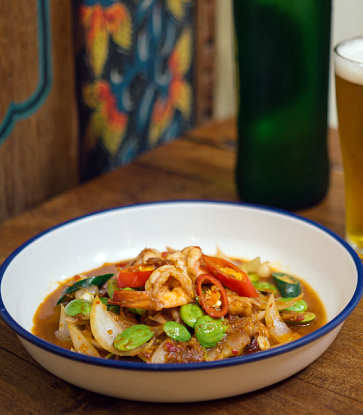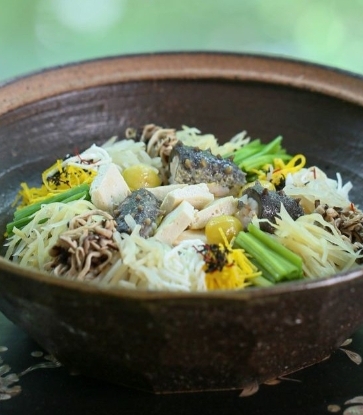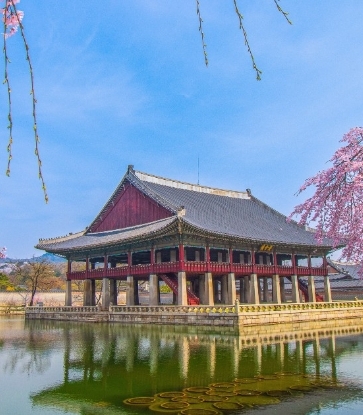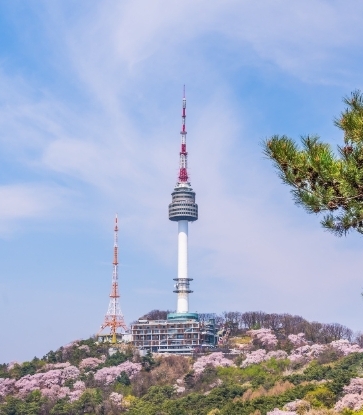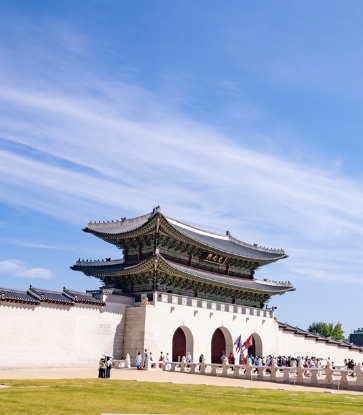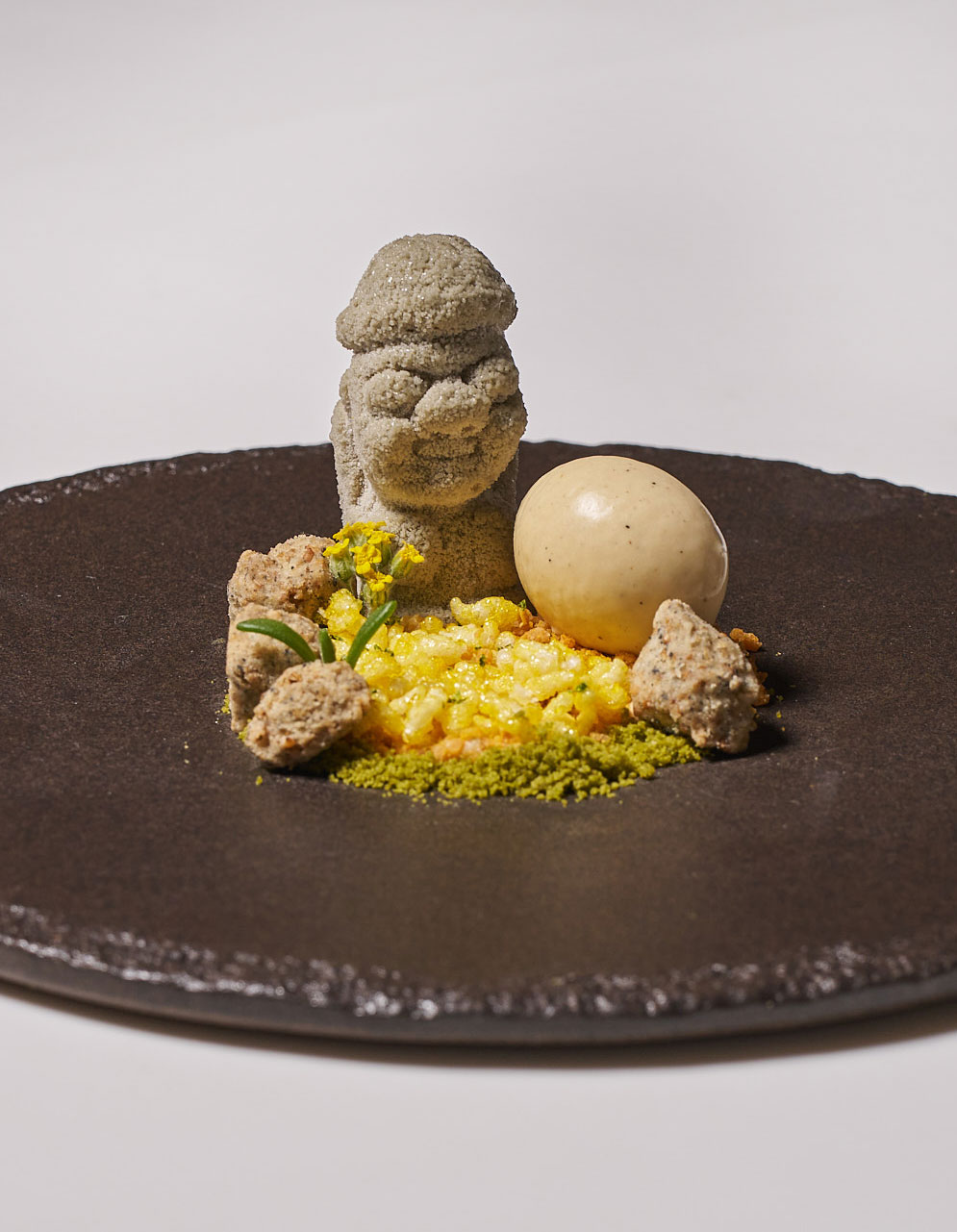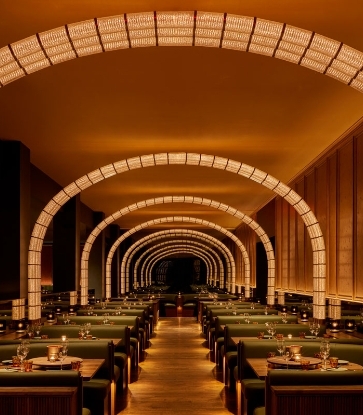It all started with a taco. Or so he thought.
In reality, it was a series of tacos — each bite intensifying his fascination with Mexican cuisine and steering Korean chef Jin Woo-bum down an unexpected path. What began as a love for tacos evolved into an obsession with authenticity — one that took him across continents, immersed him in Mexican culinary traditions, and ultimately led back to Korea, where he sought to deepen the country’s appreciation of Mexican cuisine.
As the owner-chef of Escondido, the first Mexican restaurant in Asia to receive a MICHELIN star, the 32-year-old is pushing beyond the clichés of Tex-Mex and casual fare. For him, it’s about honoring tradition and ensuring that the depth and complexity of Mexico’s food culture are fully recognized.
From Architecture to the Kitchen: A Journey into Mexican Cuisine
Born in Seoul, Woo-bum moved to the United States at 14 with no intention of becoming a chef. Initially, an architecture student at the University of California, Berkeley, he had no formal culinary training. However, after completing his military service in Korea and working briefly at a startup, he shifted his focus. Immersed in entrepreneurial culture and inspired by his love of food, he chose to combine both passions and follow a new path. In fact, he had always joked with friends that his life's Plan B was running a taco truck—never expecting this playful idea to shape his pioneering journey.
“Intuitively, tacos were always at the top of my list. But I'd never even stepped foot in Mexico— so that's exactly where I headed.”
Determined to learn from the masters, Woo-bum moved to Mexico City in 2017, enrolling at Le Cordon Bleu Mexico. His dedication paid off when he won the Best Chef William Sonoma 2018 competition, an unexpected victory for a foreign chef. After receiving several job offers, he chose to work at Pujol, the two-MICHELIN-star restaurant helmed by Enrique Olvera.
Before joining, Woo-bum had never envisioned running a fine dining restaurant. His primary focus had always been modernizing and interpreting Mexican cuisine in a way that honored its traditions. Working at Pujol allowed him to observe how Mexican chefs thought about food, interacted with ingredients, and refined their techniques.
The Birth of Escondido: A New Era for Mexican Fine Dining in Korea
Returning to Korea, Woo-bum launched the Molino Project, an initiative to introduce authentic Mexican food to the nation. His first venture, El Molino, provided a space in a quiet neighborhood near Seoul Forest where people could comfortably enjoy authentic, down-to-earth Mexican food. Meanwhile, La Calle, introduced vibrant street tacos to Seoul Central Market, a traditional market with a diverse and lively crowd.
But it was Escondido that cemented his reputation. Meaning “hidden” in Spanish, the restaurant sits discreetly in a quiet Hannam-dong alley, offering an intimate counter-style dining experience where guests engage with the chef as he explains the origins of each dish. Its meticulous dedication to traditional masa tortillas and time-honored techniques sets it apart in a country where Mexican cuisine is often reduced to fusion adaptations.
Open since 2023, Escondido made history in 2025 as the first Mexican restaurant in Asia to earn a MICHELIN star — a milestone that affirms chef Woo-bum's’s dedication and places Mexican fine dining on the continent’s culinary map. Additionally, the MICHELIN Guide Mexico launched in 2024, marking a pivotal year for the global recognition of Mexican cuisine.

“Receiving a MICHELIN star still feels surreal,” he says. “More than joy, I feel an immense sense of responsibility. The first thing I did was sit down with my team to discuss the future. This is just the beginning.”
Mole and Masa: The Foundations of His Cuisine
At the heart of Escondido’s menu is mole, a labor-intensive sauce deeply rooted in Mexican gastronomy. Chef Woo-bum approaches it with reverence, seeing it as more than just a dish but a story told through layers of flavor.
“I see mole from a cultural perspective,” he explains. “It’s a dish where 30 to 40 ingredients are blended together, creating a complex, layered taste. It’s also a dish that proudly celebrates its ingredients.”

“Mole is not a fixed dish; with countless variations, it defies a singular definition,” Woo-bum notes. “I often ask local chefs what they think mole is, as its definition varies from person to person. This is why those who deeply contemplate mole are naturally curious about how others perceive it. I, too, am interested in how local chefs understand and approach mole in their own culinary practices.”
A communal dish often served at celebrations like weddings, mole embodies the harmony that defines Woo-bum's philosophy — where balance takes precedence over highlighting individual flavors.

“In my cooking, harmony is more important than making each ingredient stand out,” he says. “With so many components, it’s unrealistic to expect every flavor to shine separately. Mole’s essence lies in how these elements merge into something greater.”
His commitment to authenticity extends to masa, often regarded as the foundation of Mexican cuisine. Escondido grinds corn in-house, making fresh tortillas, a rarity in Korea, where most restaurants rely on pre-packaged imports. For Woo-bum, Mexican cuisine always starts with corn.
“It’s the soul of everything,” he says. “How you grind, treat, and transform masa determines the nature of a dish.”

Challenging Perceptions of Mexican Food in Korea
Despite Escondido’s success, Woo-bum knows that misconceptions about Mexican cuisine persist in Korea.
Through Escondido, he hopes to reshape diners’ understanding of Mexican cuisine by immersing them in its rich heritage and authentic flavors.
“I didn’t start cooking to gain recognition,” he says. “I started because I love Mexican cuisine. I aim to continue studying and presenting it in a way that stays true to its roots while making sense in Korea.”
Looking Ahead: Expanding the Vision
For Woo-bum, the journey that started with a taco has come full circle — but in many ways, it has only just begun. With his relentless pursuit of authenticity, he isn’t just bringing Mexican cuisine to Korea — he’s elevating it to a level never seen before in Asia.
And, with Escondido firmly established in Korea, Woo-bum is now turning his focus to Mexico, where his passions may soon lead him to pastures new.
“I’m deeply grateful to Mexican culture, which I truly love,” he reflects. “Just as Mexico has shaped my cooking, I believe there’s room for cultural exchange in the other direction.”




